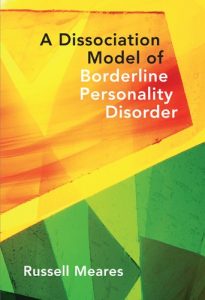A neurobiologically informed approach to a very difficult-to-treat disorder.
This book addresses one of the fundamental, understudied issues of borderline personality disorder (BPD): dissociation and a lack of sense of self. Exploring dissociation from developmental, neurobiological, and behavioral perspectives, Russell Meares presents an original theory of BPD, offering new insights into this debilitating disorder and hope for recovery.
BPD is not a new phenomenon, but much about it remains unclear and controversial. Meares’s three-stage treatment emphasizes the failure of synthesis among the elements of psychic life, the need for both personal and social development, integration of unconscious traumatic memory, affect regulation, hallucinosis, stimulus entrapment, paranoid states, and ultimately, restoration of the self. Mental health professionals working with patients suffering from symptoms of BPD will find an invaluable theoretical grounding for treating the difficult—and varied—symptoms of BPD.






